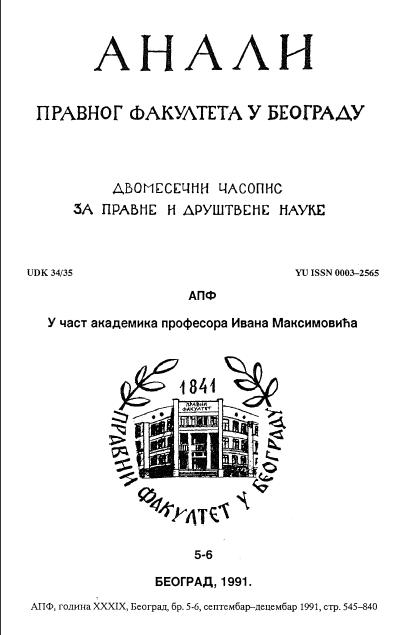ДРУШТВЕНЕ И ЕКОНОМСКЕ ПОСЛЕДИЦЕ РАЗЛИЧИТИХ СВОЈИНСКИХ ОДНОСА У ЈУГОСЛАВИЈИ
SOCIAL AND ECONOMIC CONSEQUENCES OF DIFFERENT OWNERSHIP RELATIONS IN YUGOSLAVIA
Author(s): Svetozar PejovićSubject(s): Economy, Political economy
Published by: Правни факултет Универзитета у Београду
Keywords: Ownership rights; Federation; Corporation; Participation in the decision-mating process
Summary/Abstract: Economic analysis of ownership rights and logical positivism are the ground for proposing institutional solutions which could contribute to transformation of Yugoslavia into a free and economically prosperous federal state. Logical positivism requires the cessation of normative experimentation, while the economic analysis of ownership rights presupposes the need for stable social institutions and respect of personal profit of individuals, the author does not distinguish within these frameworks between human rights and physical rights, because ownership rights include all rights of all men in relation to everything which is dear to them. A successful, namely free-will integration in Yugoslavia depends exclusively on the relationships seen by individuals between their personal profit in the federation, and their individual benefit from the secession. This assessment depends on foreseeable consequences of ownership relations in both of these alternative solutions. The effects of spontaneous and compulsory change of ownership rights are illustrated in the conclusions also by an analysis of modern corporation and participating in the decision- -making process in Germany.
Journal: Анали Правног факултета у Београду
- Issue Year: 39/1991
- Issue No: 5-6
- Page Range: 619-630
- Page Count: 12
- Language: Serbian

